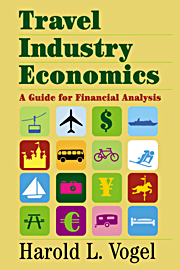Book contents
- Frontmatter
- Contents
- Preface
- Part I Introduction
- Part II Getting there
- Part III Being there
- Part IV Doing things there
- Chapter 5 Casinos
- Chapter 6 Amusement/theme parks
- Chapter 7 Tourism
- Part V Roundup
- Appendix A Sources of information
- Appendix B Valuation concepts
- Appendix C Major games of chance
- Glossary
- References
- Notes
- Index
Chapter 7 - Tourism
- Frontmatter
- Contents
- Preface
- Part I Introduction
- Part II Getting there
- Part III Being there
- Part IV Doing things there
- Chapter 5 Casinos
- Chapter 6 Amusement/theme parks
- Chapter 7 Tourism
- Part V Roundup
- Appendix A Sources of information
- Appendix B Valuation concepts
- Appendix C Major games of chance
- Glossary
- References
- Notes
- Index
Summary
A good holiday is one spent among people whose notions of time are vaguer than yours.
J. B. PriestlyA broad and generally acceptable definition of tourism suggested by the National Tourism Policy Study (1978) is that tourism involves people taking trips to a place or places outside their home communities for any purpose except daily commuting to and from work. However, no matter what the precise definition that is applied, the travel industry would certainly be much smaller if people were not interested in touring – spending leisure time relaxing, sightseeing, and participating in their favorite resort and vacation activities.
Although the economics of tourism is a topic closely related to the material presented earlier, it tackles somewhat different issues and analyzes supply and demand for travel from a perspective that differs from those of the previous chapters. Here the interest is often expressed in terms of potential for regional economic development or environmental impact or need for government to implement transportation policies. This chapter provides an overview of the economics of tourism.
Don't leave home without it
Money, that is. Indeed, promotion of tourism has always been based on the idea that a region or city could grow economically – provide jobs and business opportunities for its citizens – if tourists spend time and money.
- Type
- Chapter
- Information
- Travel Industry EconomicsA Guide for Financial Analysis, pp. 163 - 178Publisher: Cambridge University PressPrint publication year: 2001



